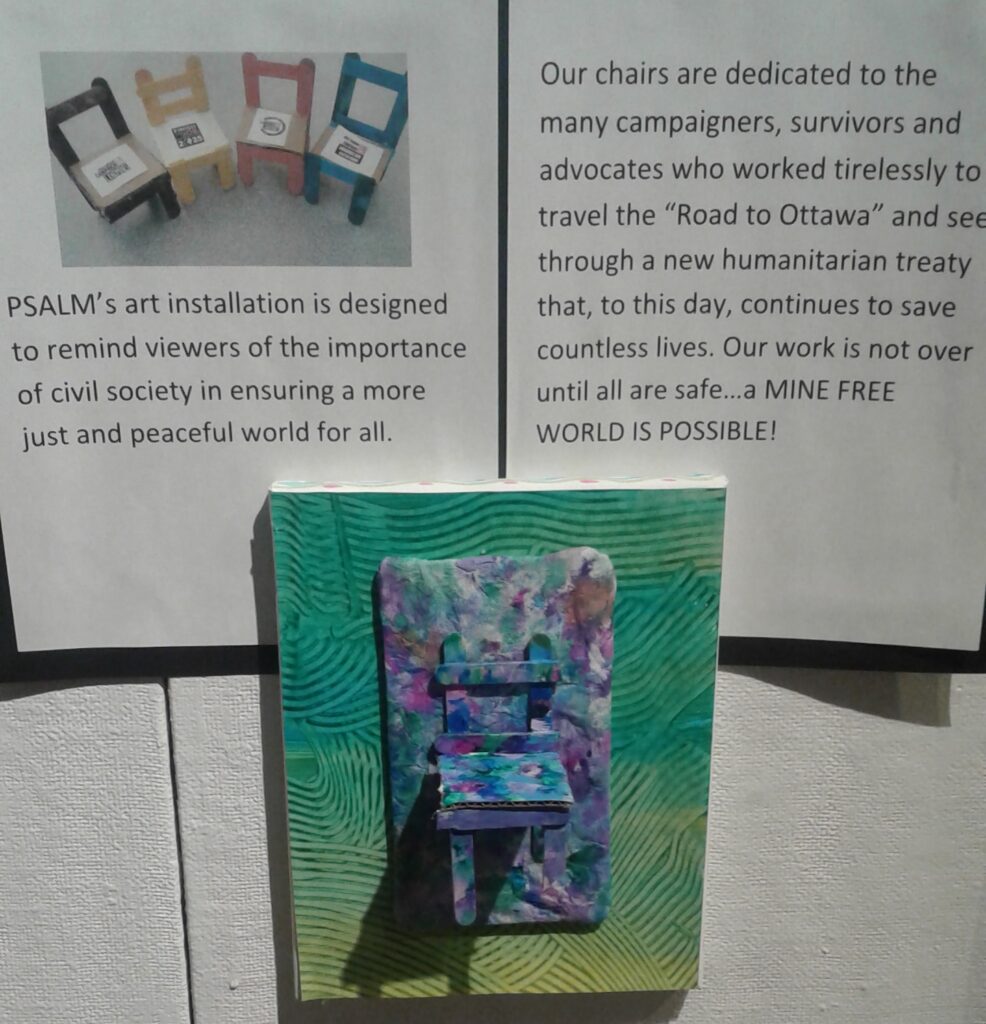March 1st, 2024 marks the 25th anniversary of the Mine Ban Treaty’s entry into force, a monumental milestone in global efforts to end the use of antipersonnel landmines, inherently indiscriminate weapons that have a devastating impact on communities worldwide. The Convention on the Prohibition of the Use, Stockpiling, Production and Transfer of Anti-Personnel Mines and on Their Destruction (also known as Anti-Personnel Mine Ban Convention, Ottawa Convention, or Mine Ban Treaty) is the cornerstone of the international effort to end the suffering and casualties caused by anti-personnel mines. Ms. Tamar Gabelnick, Director of the International Campaign to Ban Landmines – Cluster Munition Coalition (ICBL-CMC) said: “Over the past 25 years, the ICBL has driven a transformative change in humanitarian disarmament. Our collective efforts have led to tangible and lasting changes for communities affected by mines – from the clearance of huge tracts of land to the recognition of rights of survivors. With tens of millions of stockpiled mines destroyed and near universal respect for the ban on use, the future risk to communities has also been curtailed.”
Achieving the Convention’s aims
The Convention seeks an end to the suffering and casualties caused by anti-personnel mines through the pursuit of four core aims: ensuring universal adherence, clearing mined areas, destroying stockpiled mines, and assitsting the victims. To achieve these aims: national legislation, cooperation and assistance, transparency and exchange of information, facilitating compliance, and implementation support are essential.



“The Road to Ottawa”
PSALM PRESENTATION AND ART INSTALLATION
This exhibit was inspired by the countries, campaigns and members of civil society that “made it happen” and the continuing work to “finish the job” of a landmine-free world. PSALM students chose countries that signed the treaty in 1997 and designed an artwork to celebrate this amazing achievement in disarmament history.
In 1997, nations from around the world came together in Oslo to adopt the Mine Ban Treaty. In October of 1997, The ICBL (International Campaign to Ban Landmines) and Jody Williams were awarded the Nobel Peace Prize for their crucial role in starting a process that “in the space of a few years changed a ban on antipersonnel mines from a vision to a feasible reality.”
In December 1997, total of 122 nations signed the Mine Ban Treaty in Ottawa, Canada. March 1st, 1999 marked the date the Treaty entered into force. It is also the anniversary of the founding of PSALM/West Virginia Campaign to Ban Landmines.
The Mine Ban Treaty, also known as the Ottawa Treaty, is a legally binding international agreement that bans the use, production, stockpiling and transfer of antipersonnel mines and places obligations on countries to clear affected areas, assist victims and destroy stockpiles.
The Treaty is the best framework for solving the problems still posed by antipersonnel mines all over the world. The mobilization of thousands of ordinary citizens, through the International Campaign to Ban Landmines campaign network, played a crucial part in the adoption of this international treaty, and continues to play a central role in its universalization and implementation today.
The Ottawa Treaty would not likely have been possible without the sustained effort of thousands of global citizens writing their elected officials in the lead up to the treaty’s creation and signing in 1997.
A small number of core groups mobilized on the landmines problem worked closely with a wider variety of non-governmental organizations, including peace, disarmament, religious and health organizations. Banning landmines would have not been possible without great partnerships among civil society and governments.
As Archbishop Desmond Tutu once said “if the Mine Ban Treaty has made a difference in the world, it is because the partnership between governments and civil society forged through the process that created the treaty has continued to this day”.
“Landmines remind us of the dramatic cruelty of wars and the price civilian populations are forced to bear” – Pope Francis, on the 25th anniversary of the MineBanTreaty
